A workshop entitled "The Future of the Olive and Olive Oil Sector in Egypt"
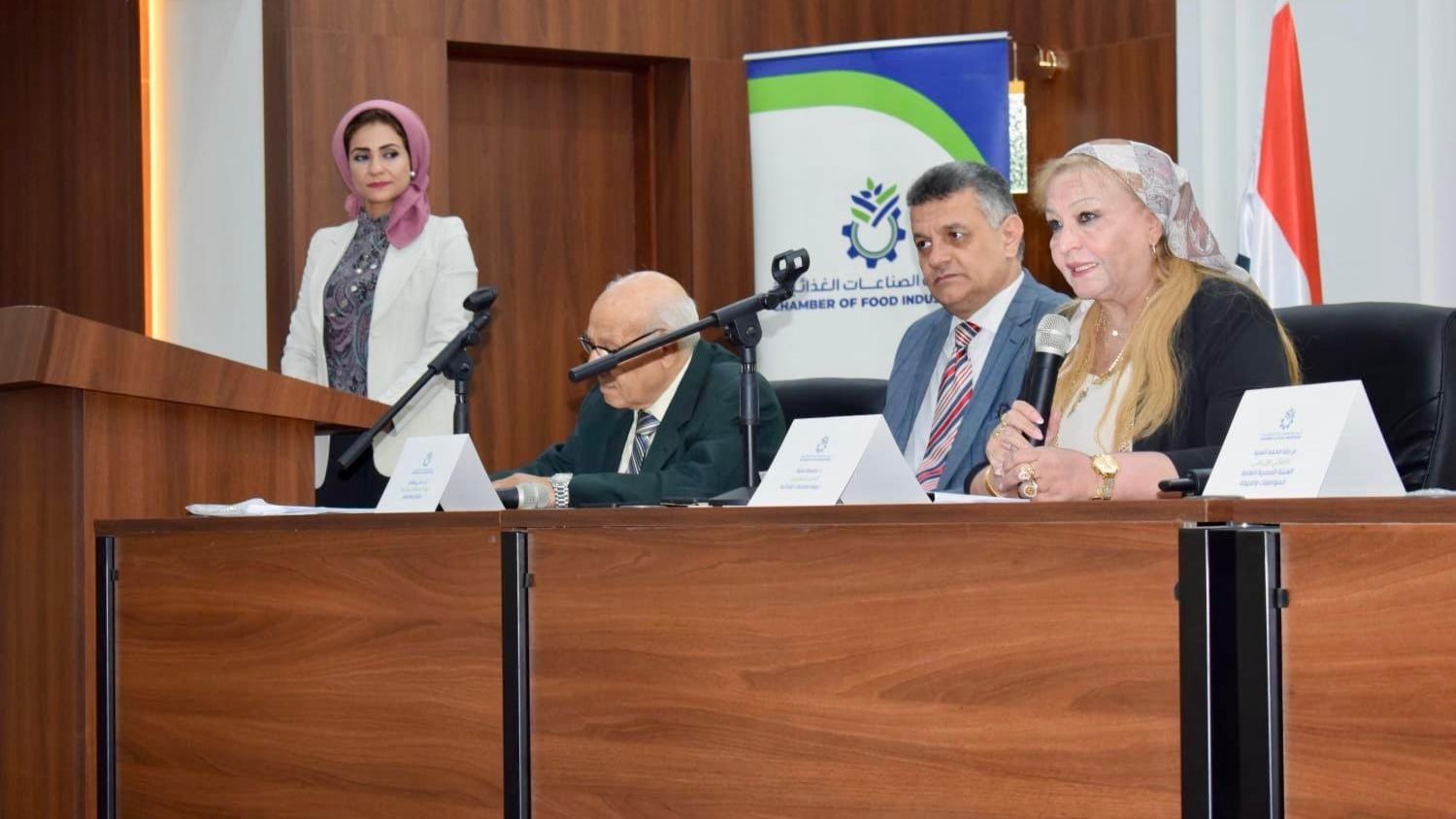
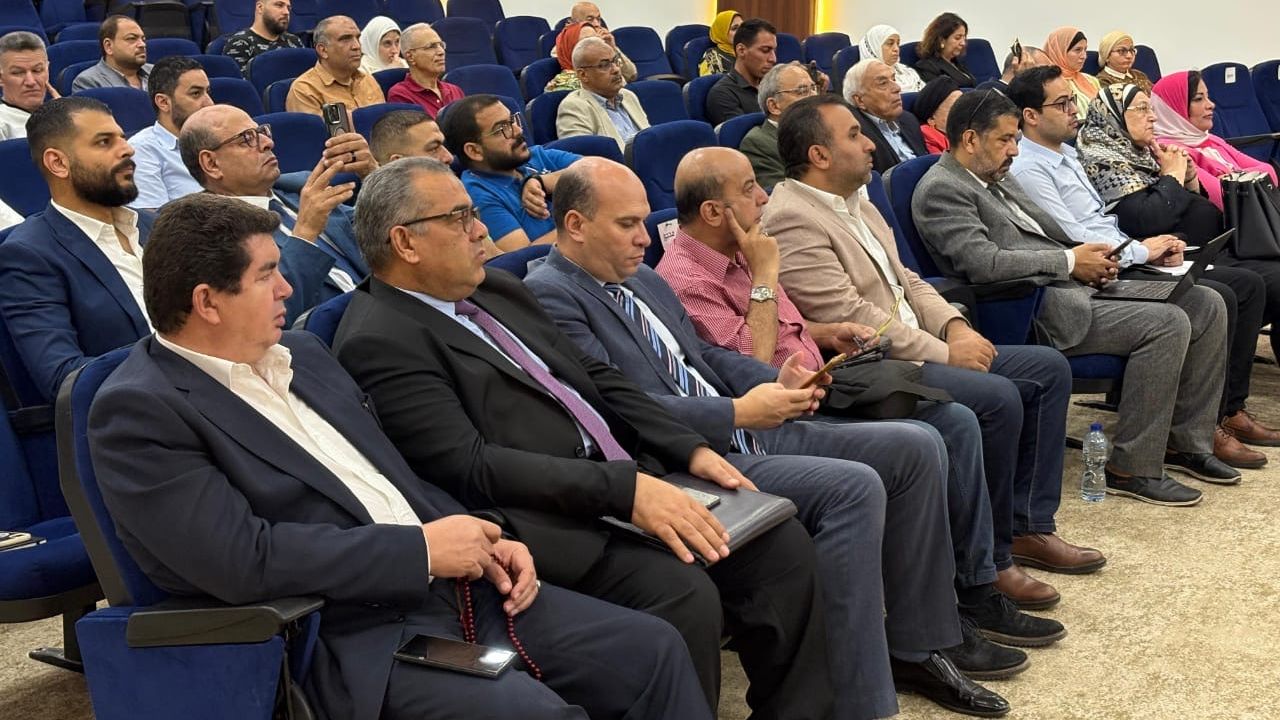
The Chamber of Food Industries held a workshop on "The Future of the Olive and Olive Oil Sector in Egypt... Challenges - Solutions - Opportunities - Exports" as part of the Chamber's role to support and assist the food industries sector, enhance its competitiveness in local and international markets, and open new export markets. The workshop was chaired by Dr. Maysa Hamza, Executive Director of the Chamber, and a number of experts and specialists, including Dr. Hanafy Hashem, Professor of Food Industries at the Faculty of Agriculture, Al-Azhar University; Dr. Shaker Arafat, Professor of Oils and former Director of the Food Technology Research Institute; Dr. Reda Mohamed El-Sayed, Senior Technical Specialist at the Egyptian Organization for Standardization and Quality; Eng. Mahmoud El-Barghouthi, Olive Cultivation Consultant; Dr. Adel Gabr Abdel Razek, Professor of Oils, Fats, and Derivatives at the National Research Center; Ms. Mai Khairy, Executive Director of the Food Export Council; Mr. Mahmoud Hassan, Chairman of the Board of Directors of Midmart Company; and Dr. Reda Abdel Galil, General Manager of Technical Affairs at the Chamber of Food Industries. Dr. Maysa Hamza opened her speech by highlighting the remarkable expansion in olive cultivation that Egypt has witnessed in recent years. However, this agricultural expansion requires a parallel expansion in the associated processing and marketing industries, a serious consideration of the challenges and opportunities, and joint action to explore ways to advance this industry on an integrated scientific and practical basis. She added that the Chamber believes in the importance of partnerships between all concerned parties to develop this vital industry, noting that global competition in this sector is one of the most prominent challenges facing the enhancement of the status of the Egyptian olive and olive oil industry. She explained that Egypt not only competes with countries that possess advanced technologies in olive cultivation and production, but also faces increasing challenges in global markets, which requires Egyptian industries to develop their agricultural and marketing strategies in order to seize a larger share of these markets, in addition to intensifying production operations and adapting them to meet international standards for oil quality and packaging. She emphasized that the Chamber of Food Industries is working with all its might to implement all recommendations that serve the various sectors operating in this field, with the aim of driving growth and achieving sustainable added value for Egyptian products. The Food Export Council presented Egypt's exports, which amounted to approximately $226 million, representing approximately 4% of total food industry exports. They also noted the significant growth witnessed by olive oil exports, reaching $35 million in 2024, a 76% increase compared to $20 million in 2023. Dr. Reda Abdel Galil, General Manager of the Technical Affairs department at the Chamber, pointed to the services offered by the Chamber, including technical support and training programs for developing the food industries sector, the olive and olive oil industry, and assisting companies in qualifying for registration with the National Food Safety Authority and the White List, in addition to participating in preparing specifications and resolving problems faced by companies from the competent authorities. This is achieved through its effective representation in numerous committees at the National Food Safety Authority and the Egyptian Organization for Standardization and Quality. The workshop discussed the challenges facing the development of the olive and olive oil sector in Egypt at various stages, including cultivation, processing, packaging, marketing, and export. It reviewed best practices for handling olives during and after harvest, which contribute to increased productivity and improved quality, along with standard specifications and laboratory testing. The workshop also addressed ways to achieve sustainability, support Egyptian olive-related industries, and explore opportunities to enhance the sector's competitiveness, increase exports, and open broader horizons for Egyptian products regionally and in global markets, by adhering to the highest quality standards in production, manufacturing, and packaging.
A training program entitled: "Laws and Legislation Regulating the Feed Sector, Good Storage Practices, and Preventive Maintenance of Feed Mills"
The Chamber of Food Industries held a training program entitled "Laws and Legislation Regulating the Feed Sector, Good Storage Practices, and Preventive Maintenance of Feed Mills." The training program was chaired by Dr. Mohamed El Shafei, a member of the Chamber's Board of Directors, with the attendance of several experts from the Agricultural Research Center, a representative from the United Nations Environment Program (UNEP), a representative from the Industrial Development Authority, and several representatives from the Chamber's member feed mills. This program falls within the Chamber's commitment to enhance the efficiency of workers in the feed sector and promote the concepts of good practices, which will reflect on product quality and advancement of the sector. The program included training on the legislative framework regulating feed trade, the technical and administrative requirements for registering feed, concentrates, and additives, good storage practices, including the design of storage facilities for raw materials and finished products, traceability and handling requirements, optimal storage conditions from an environmental and economic perspective, and mechanisms for dealing with non-conforming products. The training program also addressed the principles of preventive maintenance for equipment and production lines, its direct impact on reducing breakdowns, and the application of tools and techniques for performance monitoring and early detection of technical problems.
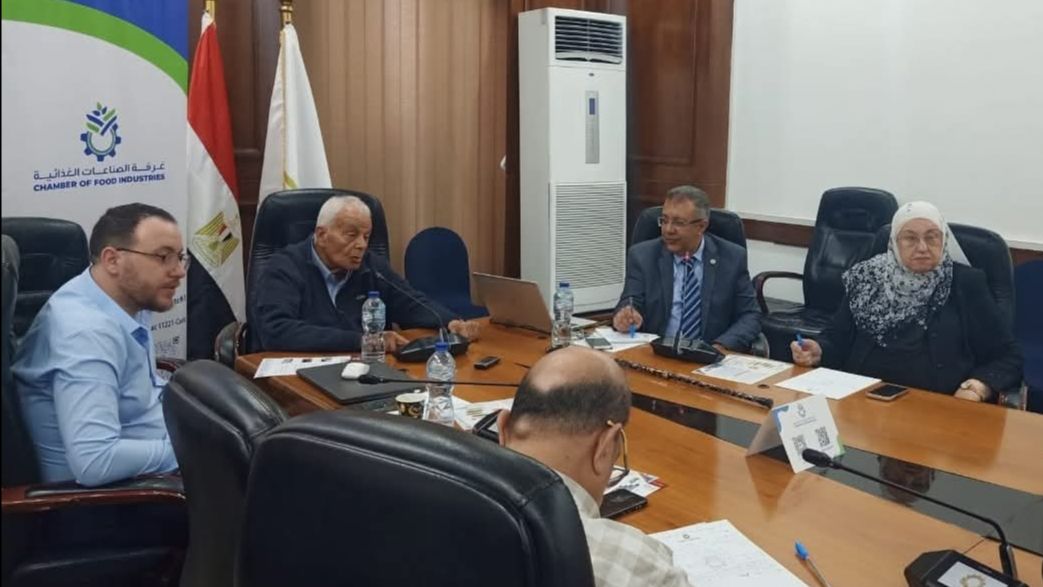
A training program entitled "Lean Manufacturing and Waste Elimination"
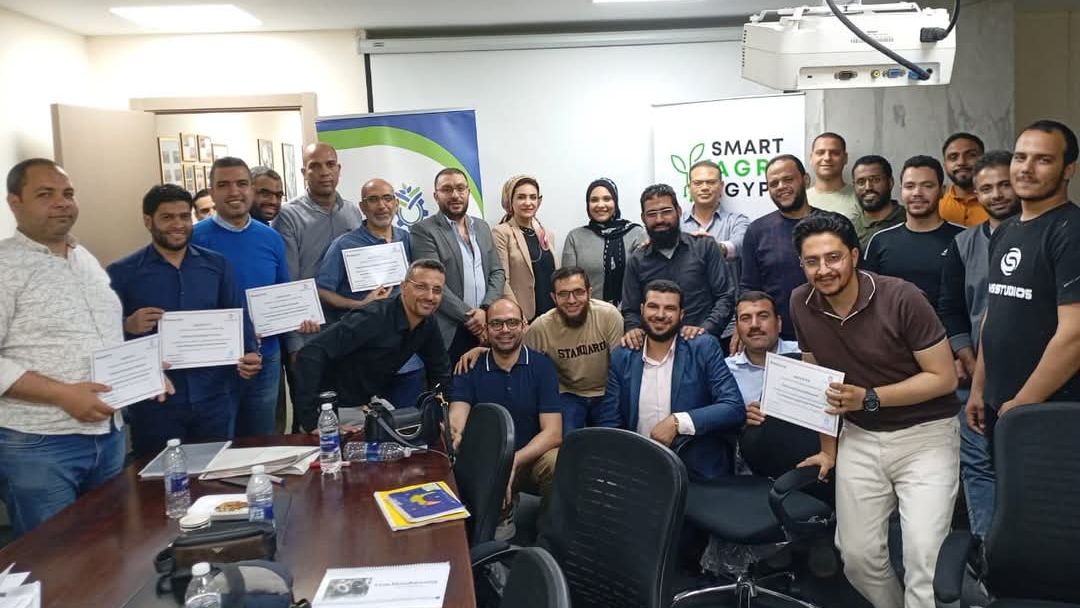
The Chamber of Food Industries organized a training program on "Lean Manufacturing and Waste Elimination" for the second time for a period of 5 days, in cooperation with Digital Solutions in Egyptian Agricultural and Food Systems (GPP) project funded by the German Federal Ministry for Economic Cooperation and Development (BMZ). The program aimed to identify the flexible manufacturing system - eliminating waste - the importance of implementing the system and its impact on raising efficiency and improving resource utilization and identifying work tools for eliminating waste. This program also targeted warehouse managers, production managers, quality managers, maintenance managers, engineering managers, technical office and planning managers. This training comes within the context of a group of trainings that work to achieve sustainability and raise the efficiency of resource use.
The third regular meeting of the Chamber, in cooperation with the General Administration of Export Control at the National Food Safety Authority and the Food Export Council and General Authority for Industrial Development
As part of its support for the food industries sector and its efforts to increase exports, the Chamber of Food Industries held a regular joint meeting, chaired by Dr. Maysa Hamza, Executive Director of the Chamber, with the General Authority for Industrial Development, represented by Dr. Walid El-Bahrawy, General Manager of the Food Projects Department, and Ms. Salma Khalil Abdel Latif, Head of the Technical Secretariat of the Ministerial Inspection Committees; the National Food Safety Authority, represented by Dr. Ashraf Sami, General Manager of the General Administration of Export Control; and the Food Export Council, represented by Mr. Samir Abdullah, Member Service Officer. The meeting reviewed the actual implementation of the mechanisms for issuing certificates of validity and the system for releasing under custody, transport, and storage of incoming food consignments, which were issued by the National Food Safety Authority and entered into force on January 1, 2025. The meeting addressed the current situation, addressing the challenges facing the food industries sector, and facilitating and simplifying the procedures for issuing certificates of validity for food products to enhance the competitiveness of Egyptian products in global markets.
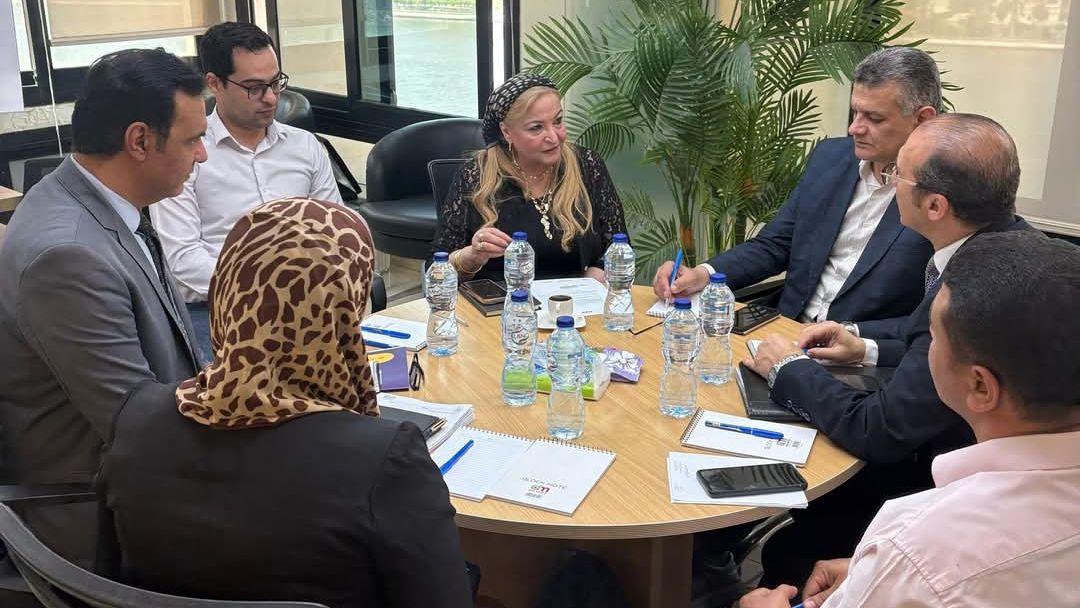
A training program entitled "Implementing Integrated Pest Management in Food Manufacturing and Handling Facilities"
The Chamber of Food Industries organized a training program entitled "Implementing Integrated Pest Management in Food Manufacturing and Handling Facilities" in light of the Chamber's keenness to raise the efficiency of workers in its member companies. The training program covered some important topics, including "Integrated Pest Management, the importance of Integrated Pest Management, food pests in food manufacturing and handling facilities, the Integrated Pest Management approach, Integrated Pest Management plans, good health practices, inspection and evaluation, non-chemical and chemical control methods, an applied model of Integrated Pest Management in food manufacturing and handling facilities and common mistakes in application: how to establish the program, practical implementation and practical models, monitoring and the role of supervision, coordination and cooperation: the role of senior management, the role of workers, the role of pest management contractors, communication, reports, records and documents, training, and review and inspection." The program was attended by a large number of the Chamber’s members.
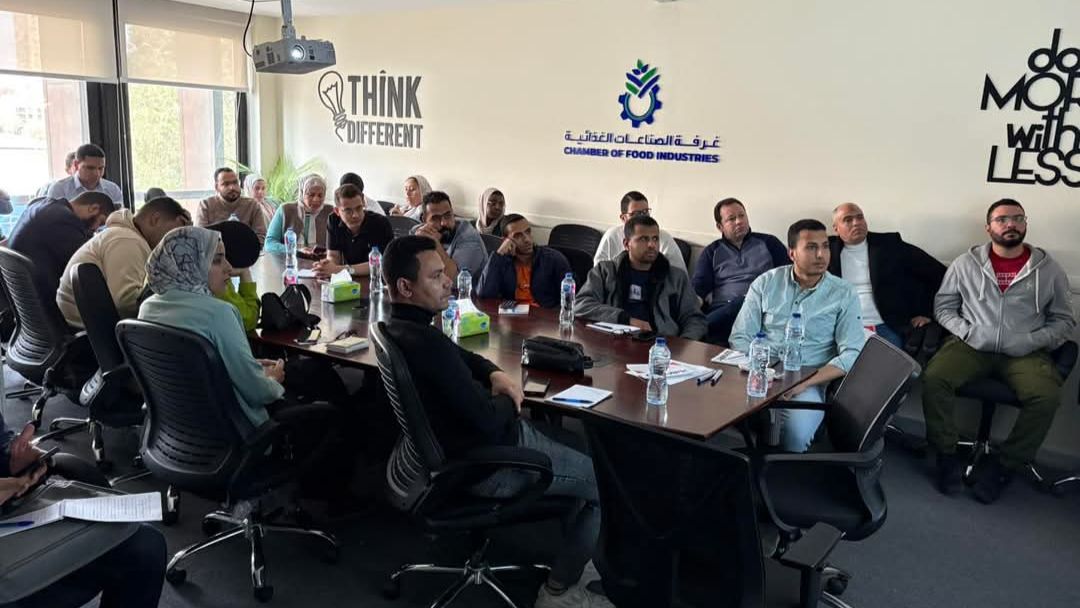
A training program entitled "Implementing Integrated Pest Management in Food Manufacturing and Handling Facilities"

The Chamber of Food Industries organized a training program entitled "Implementing Integrated Pest Management in Food Manufacturing and Handling Facilities" in light of the Chamber's keenness to raise the efficiency of workers in its member companies. The training program covered some important topics, including "Integrated Pest Management, the importance of Integrated Pest Management, food pests in food manufacturing and handling facilities, the Integrated Pest Management approach, Integrated Pest Management plans, good health practices, inspection and evaluation, non-chemical and chemical control methods, an applied model of Integrated Pest Management in food manufacturing and handling facilities and common mistakes in application: how to establish the program, practical implementation and practical models, monitoring and the role of supervision, coordination and cooperation: the role of senior management, the role of workers, the role of pest management contractors, communication, reports, records and documents, training, and review and inspection." The program was attended by a large number of the Chamber’s members.
The first meeting of its kind under the title "Ask the Chamber"
The Chamber of Food Industries organized the first-of-its-kind "Ask the Chamber" meeting, attended by the General Managers of the Chamber's various departments. The meeting aimed to enable companies to understand the technical and legislative requirements necessary to improve their performance, enhance communication channels between the Chamber and its members through an open and transparent platform, and provide direct, practical answers that meet members' needs and remove the obstacles they face. All questions raised were answered, including technical, financial, training, membership affairs, events, exhibitions, seminars, and legislation.
The second regular meeting with the Director of the General Department of Factory Control at the National Food Safety Authority
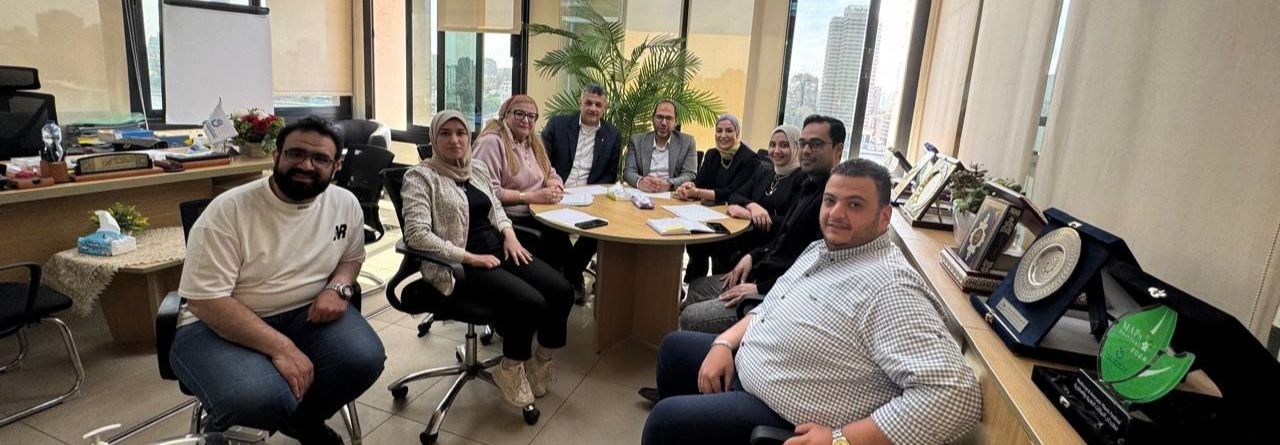
As part of the Chamber of Food Industries' commitment to supporting the food industry sector and monitoring the challenges facing member factories, the Chamber held its second regular meeting with the Director of the General Department of Factory Control at the National Food Safety Authority. This meeting is part of a series of periodic coordination meetings between the Chamber and the National Food Safety Authority, which aim to enhance effective communication channels, explore ways to overcome obstacles facing industrial establishments, and ensure the smooth implementation of food safety requirements. Inquiries submitted by 56 factories were presented to the Director of the General Department of Factory Control. Procedures for including establishments on the list of factories that meet safety requirements were discussed, as well as challenges related to the timing of periodic inspection visits and their impact on the continuity of production and export.
A Symposium on "Monitoring Observations on the Actual Implementation of the Mechanisms for Issuing Certificates of Validity and Release Under Custody"

The Chamber of Food Industries, headed by Eng. Ashraf El Gazayerli, in cooperation with the Food Export Council, headed by Eng. Mahmoud Bazan, held an extensive symposium on monitoring observations on the actual implementation of the new mechanisms for issuing certificates of validity and release under custody, in partnership with the National Food Safety Authority. The event was attended by Dr. Amr Masoud, Executive Director of the National Food Safety Authority, Dr. Iman Helmy, Acting Head of the Central Administration for Branches, representatives from the Authority, Dr. Maysa Hamza, Executive Director of the Chamber of Food Industries, Ms. May Khairy, Executive Director of the Food Export Council, and more than 150 representatives of food establishments who are members of the Chamber and the Council.
A training program entitled: “Lean Manufacturing & Waste Elimination”

The Chamber of Food Industries organized a 5-day training program on "Lean Manufacturing and Waste Elimination" in cooperation with the Digital Solutions in Egyptian Agricultural and Food Systems (GPP) project funded by the German Federal Ministry for Economic Cooperation and Development (BMZ) with the aim of identifying the lean manufacturing system - eliminating waste - the importance of implementing the system and its impact on raising efficiency and improving resource utilization and identifying work tools for eliminating wastes. This program also targeted warehouse managers, production managers, quality managers, maintenance managers, engineering management managers, technical office and planning managers. This training comes within the context of a group of trainings that work to achieve sustainability and raise the efficiency of resource use.
Workshop on Implementation Mechanisms for the Second Phase of the "Decent Jobs for Egypt's Youth" Project

The Chamber of Food Industries, headed by Eng. Ashraf El Gazayerli, organized a workshop in Damietta Governorate under the patronage of His Excellency the Governor, Dr. Ayman Al-Shehabi, in cooperation with the International Labor Organization (ILO). The workshop discussed the mechanisms for implementing the second phase of the “Decent Jobs for Egypt’s Youth” project, funded by Methanex Egypt. The workshop was attended by Dr. Maysa Hamza, Executive Director of the Chamber of Food Industries, Dr. Berihan Tawfik, Director of the International Labor Organization, and Eng. Hoda Awad, Public Relations Manager for Methanex Egypt. The workshop aimed to train a number of young people on food safety standards to ensure improved product quality and enhance the sector's competitiveness. It also addressed enhancing joint cooperation between Damietta Governorate and the Chamber of Food Industries to support the confectionery and dairy industries.
A sub-workshop entitled "Maximizing the Utilization of Vegetable and Fruit Waste"
The Chamber of Food Industries held a workshop in cooperation with the Academy of Scientific Research in Egypt on maximizing the use of fruit and vegetable waste. The workshop was attended by Dr. Mohamed El Shafei, a member of the Chamber's Board of Directors, experts from universities, research institutes, and food factories that are members of the Chamber. This comes within the framework of the Chamber's commitment to maximizing the use of food and agricultural waste by launching an initiative for all food sectors and linking the industry to scientific research.
Dr. Mohamed El Shafei emphasized that the Chamber seeks, through this workshop, to maximize the benefits of fruit and vegetable processing facilities. He noted that a series of meetings have been held as part of the Chamber's initiative to explore the potential use of agricultural waste and food processing products for various industries, including fisheries.
He also explained that the Chamber's initiative is based on identifying all types of waste within factories and agricultural production and determining the possibility of its presence in order to work with research centers to prepare a study on its reuse in the manufacture of non-traditional feed for feeding fodder animals, providing livestock needs, and producing high-value by-products, thus enhancing access to a clean industrial environment through zero waste and deepening national industry by providing local alternatives for raw materials and production inputs to reduce the import bill.
The Chamber's participation in a Symposium on the most important challenges facing cheese manufacturers

